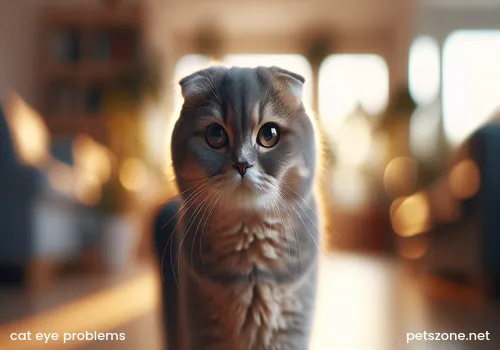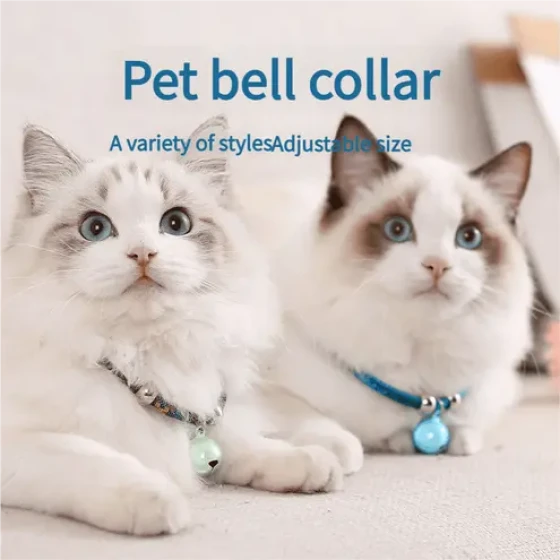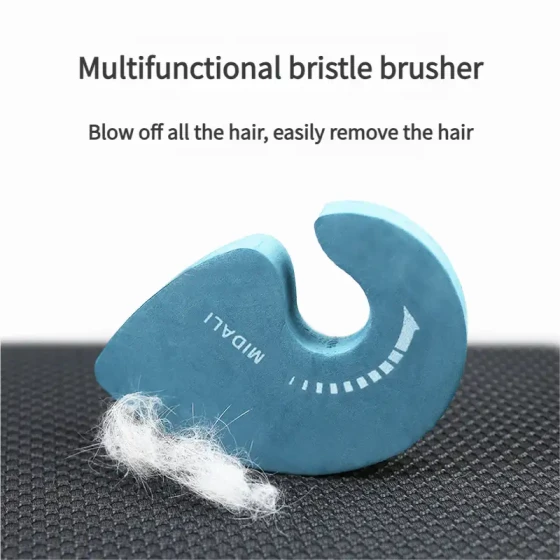Cat's eyes cannot open_how to handle emergencies
When your kitten suddenly cannot open its eyes, this is often not a minor matter but a clear signal from them: I am uncomfortable and need help! Various reasons may lie behind this condition, from simple foreign body irritation to severe infections or eye diseases, all requiring serious attention and timely proper handling to avoid delays in treatment.
Just like human eyes tear and squint when sand gets in, a cat’s eyes may show discomfort such as tearing, redness, swelling, or even inability to open if irritated by dust, hair, or other foreign objects. Curious little adventurers who like to explore under sofas or beds at home are especially prone to this.

A more common situation is that the cat cannot open its eyes due to eye inflammation. For example, conjunctivitis is a very common eye problem in cats, manifested as congestion and redness of the conjunctiva (the white part of the eye), swelling, and increased discharge that may be clear, white, yellow, or even rusty-colored. Severe conjunctivitis can cause discharge to glue the eyelids shut, preventing the cat from opening its eyes. Conjunctivitis may be caused by bacteria, viruses, fungi, parasites, or environmental irritants or allergies. Among these, feline herpesvirus and calicivirus are common culprits of infectious conjunctivitis.
Another severe condition that may cause a cat’s eyes to remain closed is corneal ulcer. The cornea is the outermost transparent layer of the eye. If it is injured (for example, by fight scratches), infected, chronically dry, or damaged for other reasons, ulcers may form. Corneal ulcers cause intense pain, with obvious squinting, tearing, and light sensitivity. Sometimes the corneal surface appears cloudy. The disease develops rapidly, and without timely treatment, may cause corneal perforation or even blindness. Cats’ own scratching behaviors can easily worsen corneal damage.
Additionally, newborn kittens may not open their eyes due to neonatal conjunctivitis, usually caused by bacterial or viral infection acquired during birth from the mother or due to unsanitary living environments. In this case, the kitten’s eyelids may be swollen and stuck together.
Other reasons may include glaucoma (increased intraocular pressure), cataracts (lens clouding), or eye symptoms caused by systemic diseases. Some breeds like Persian cats are more prone to tear overflow (excess tear secretion or tear duct blockage) due to their facial structure, and long-term tear stimulation can cause eyelid skin inflammation, affecting eye opening.
Emergency handling steps:
When you find that your cat cannot open its eyes, don’t panic first. There are several emergency steps you can try, but remember these are only temporary measures before seeing a vet and cannot replace professional diagnosis and treatment.
- Put on an Elizabethan collar: This is the most important step! Cats instinctively scratch or rub their uncomfortable eyes, which greatly worsens eye injuries, especially corneal ulcers. Immediately putting an Elizabethan collar on your cat can effectively prevent them from scratching their eyes.
- Clean the eyes: Check if there is discharge around the cat’s eyes. If there is much discharge, use clean, soft gauze or cotton balls dipped in warm water (not cold or hot!) to gently wipe around the eyes and eyelids to soften and remove discharge. Be gentle to avoid irritation or injury. You can use pet-specific eye wash or saline solution. Note: it is not recommended to use human eye drops or saline for long-term use as it may dilute the cat’s natural tears and make the eyes drier.
- Observe and record: While performing initial care, carefully observe the cat’s eye condition: one or both eyes affected? Degree of redness and swelling? Color and type of discharge? Any other symptoms like sneezing, runny nose, lethargy, or loss of appetite? This information is very helpful for the vet’s diagnosis.
- See a vet as soon as possible: After these emergency steps, be sure to take your cat to the vet promptly. Eye diseases develop quickly, and early diagnosis and treatment lead to better outcomes. Do not use any human eye drops or medications without veterinary approval to avoid worsening the condition.
Veterinary diagnosis and treatment:
At the animal hospital, the vet will conduct a detailed eye examination. They may use fluorescein staining to check for corneal ulcers. If an infection is suspected, samples of eye or nasal discharge might be collected for testing to identify bacterial, viral, or other pathogens.
Based on the diagnosis, the vet will devise an appropriate treatment plan:
- Infection: Bacterial infections are treated with antibiotic eye drops or ointment. Viral infections (such as feline herpesvirus) may be treated with antiviral drugs plus antibiotics to control secondary bacterial infection.
- Corneal ulcer: Superficial corneal ulcers usually heal with medication including antibiotic eye drops and corneal epithelial growth factors. For deep or complicated ulcers, surgery (such as corneal debridement or conjunctival flap) may be necessary. Wearing an Elizabethan collar during treatment is crucial.
- Foreign bodies: The vet will safely remove any foreign material and check for secondary infection or injury.
- Other diseases: Other eye or systemic diseases will be treated according to the specific cause.
Prevention is better than treatment:
Though some eye problems are unavoidable, daily care and prevention reduce risks:
- Regular eye cleaning: Use clean damp gauze or pet eye wash to regularly clean tear stains and discharge, especially in breeds prone to tearing.
- Maintain environmental hygiene: Clean your cat’s living area regularly to reduce dust and foreign objects.
- Balanced diet and adequate water intake: Avoid feeding overly salty or greasy food; ensure sufficient hydration to help prevent internal heat-related eye issues.
- Regular check-ups and vaccinations: Take your cat for health checks regularly to detect and manage potential issues. Core vaccines (such as the feline triple vaccine) prevent common infectious diseases like feline herpesvirus.
- Avoid exposure to irritants: Keep perfumes, cleaning agents, tobacco smoke, and other irritants away from your cat’s eyes.
A cat’s eyes are important windows to explore the world and mirrors of their emotions. As responsible pet owners, we must protect their bright, clear eyes. More careful observation and less reliance on luck, timely and professional responses when your cat’s eyes send a “help” signal is the best way to show love.
References:
- Common five major cat eye diseases, how to treat and care? Pet Doctor
- Neonatal kitten eye diseases: causes, symptoms, and treatment Cat Network
- Cat and dog eye care The Village Vet
- Cat eye care: identifying and preventing 6 types of cat eye problems Hill's Pet Nutrition
- What does sudden inability to open cats and dogs’ eyes mean? Vet teaches 4 emergency steps udn Pet Blog
- Pet knowledge: What to do if your cat’s eye is accidentally injured, don’t panic, best emergency care NetEase
- Cat knowledge: How to remove cat tear stains NetEase
- Prevention and care of feline ophthalmic diseases | Concordia Pet Care
- Understanding feline herpesvirus Pet Doctor
- Complete guide to feline herpesvirus symptoms and diagnosis
- How to clean cat eyes Boehringer Ingelheim
- Cat corneal ulcers and treatments Boehringer Ingelheim
- Herpesvirus Mainer Cat Cattery
- Cat corneal ulcers: causes, symptoms, and treatment Cat Network
- Cat eye diseases: conjunctivitis and keratitis Diary Douban
- Common cat eye diseases and treatments Boehringer Ingelheim
- Summary! Common cat eye diseases all in one article! NetEase
- Can cats use human eye drops? What eye drops for cats NetEase
- Cat eye redness and tearing, what to do? Pet Hospital
- What eye drops to use for cat eye inflammation? Pet Hospital
- Do dogs and cats need eye drops for dry eyes? Vet advice on artificial tears use
- Why is a kitten’s eye area red? NetEase
- Treatment and care for canine and feline corneal ulcers (with pictures) Animal Husbandry
- Systemic diseases causing eye diseases in cats Vaccine Network
- Causes and treatment methods for excessive cat eye discharge NetEase
- [Doctor’s reminder] The first thing to do when cat’s eyes are red is NOT to take them to the hospital! Ink Hair Lots
- Accidentally scratched my cat’s skin. Need advice?! Please?! Reddit
- Cat raising experience: How to prevent Scottish Fold tear stains, prevent Scottish Fold eye discharge Sina
- What to do when cat’s eyes are inflamed and won’t open? Boehringer Ingelheim



